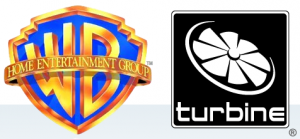
It is now official. In the world of video game development, Boston rules.
This unassuming city is home to some of the most talented developers and designers that the virtual world has ever seen. Whether you want to beat up on orcs, strap on a Gibson or dive off buildings, this is the place to be.
Warner Brothers Home Entertainment Group’s acquisition of Turbine Entertainment on April 20th was the latest corporate thumbs-up in a long list of investments into the local community. Turbine, which was the largest privately-owned online gaming studio in North America before being purchased, was the developer behind popular online role-playing games such as Dungeons & Dragons and Lord of the Rings. Millions of players channeling their inner dwarfs by fighting the minions of Sauron to ensure that Middle-Earth will not overrun by the forces of darkness — That’s nothing to shake a stick at.
A statement issued by Warner Brothers on the Turbine website showed the media giant’s commitment to the continued success of the studio. But how will that success be defined and by whom?
Martin Tremblay (President, WB Interactive Entertainment) said, “Turbine is recognized globally for its industry-leading technology, groundbreaking graphics and its unique ability to create and operate massive and persistent online worlds which greatly enhance players’ social gaming experiences,” and continued by commenting that “The Lord of the Rings Online and Dungeons & Dragons Online have both been an enormous success for Turbine and we look forward to working with their talented development team to continue creating award-winning online games.”
This just-keep-doing-what-you’re-doing attitude is certainly a sign that this acquisition was an enormous success for Turbine and vindication for their original investors who will walk away with a small profit from their own vision. For Warner Brothers, it’s a golden opportunity to beef up their video game portfolio following the acquisition of Washington’s Snowblind Studios in 2009, and Midway Games (Mortal Kombat) and British company TT Games (Lego Star Wars/Batman/Indiana Jones) in 2007.
Let’s tie it all together, shall we?
First off, TT Games produced Lego Rock Band which was developed by our good friends at Cambridge-based Harmonix, whose immediate parent company is MTV Networks, which in turn, is part of the Viacom media empire (based in New York).
Harmonix, of course, has been hugely successful with its Rock Band product and the latest incarnation will see the band Green Day, which is already being depicted on Broadway, will bring their brand of pop-punk to gaming consoles with a requisite advertising campaign that will dwarf the budgets of many of Boston’s smaller games developers.
A more cynical man would see a pattern beginning to develop.
In April, Conduit Labs announced that they had inked a deal with Universal Music Group that would give them access to the huge roster of artists that make up the music behemoth. Universal, in turn, is also part of a huge media empire, the French Company Vivendi, and is generally recognized as one of the “Big Four” record labels in the world (Sony, EMI and Warner Music are the others). Again, this seems to be an excellent opportunity for a local company to make significant inroads into the online global gaming market but this increased investment in Boston talent seems to disguise a bigger picture.
Traditionally,the powerhouse game developers have been on the West Coast. Companies such as Activision Blizzard and Electronic Arts (EA) have been a staple part of the gaming world for so long that their logos are as recognizable as the games they produce. Appreciating the talent in the Boston area, Californian-based EA recently signed a publishing deal with 38Studios, the brain-baby of Red Sox legend Curt Schilling, and the development of a RPG is currently underway.
But it seems to this writer that the flexing of check-book muscle by outside forces is not the dream scenario that some would want to promote. If we take a small studio like Dejobaan Games, then the margins of competition are greatly reduced when it comes to being able to market and, more importantly, sell their games — especially when they are faced with outside investment in competitors.
Once a company becomes part of a bigger corporate network, the rules change.
The element of autonomy vanishes and the creativity that characterised the company product can become swallowed up by a corporate vision that has nothing to do with imagination and everything to do with financial return. Corners can be cut, the game-play can suffer and the fanbase can stop buying the game. And if game doesn’t sell…Well, then the axe falls.
Harmonix has been extremely lucky so far, as they produce a video game experience that appeals to a huge sub-section of society and there is every indication that they will produce quality products for some time to come. Likewise for Turbine, since they can count on a huge fanbase of gamers already hooked on their products.
However, with great power comes great responsibility. And whilst the powerhouse studios of the West Coast are beginning to wake up to the talent that exists in New England, those of us who want Boston to become the premier destination for gaming development will continue to cast our eyes to the west with concern.
Boston has lost far too many influential people to the sunshine of California, and gaming is a sector Boston currently has a shot at dominating nationally. It is time to say that if you want to play in Beantown, you should stay in Beantown.
